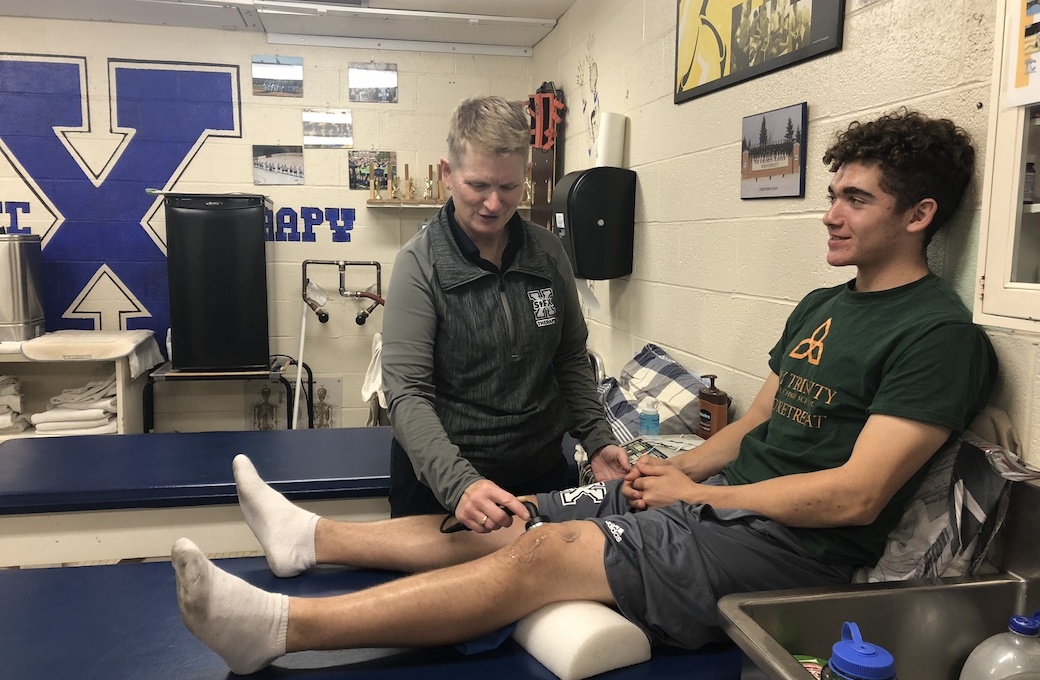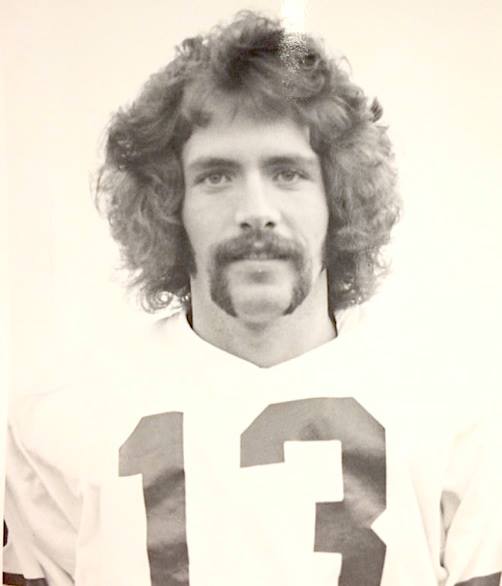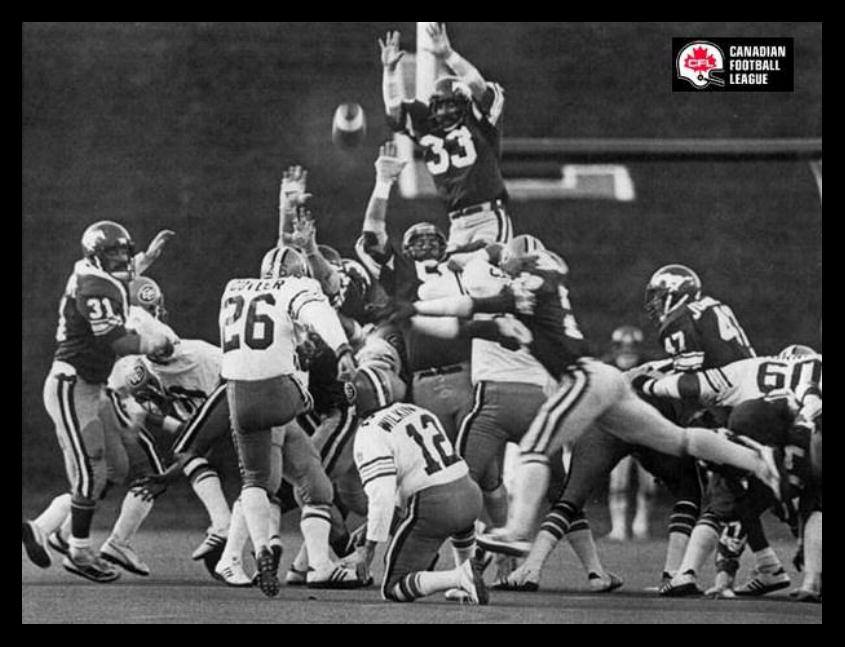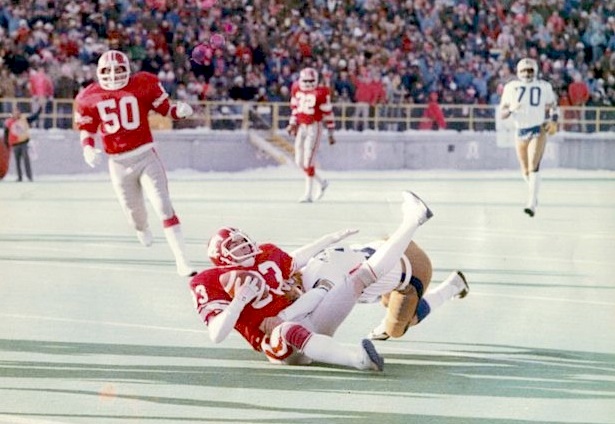Corporate
Getting to know your U SPORTS athletics staff: Tara Sutherland, StFX X-Men / X-Women


Charlie Pinkerton

Blended into the palette of Garnet and Grey in the north section of TD Place at the 50th Panda Game on Saturday will be one of the University of Ottawa’s most colourful alumni.
Doug Falconer will be well-behind the bench he once sat, and it’s a safe bet that the “Gee-Gee for life” who is back in Ottawa for good will be a fixture for years to come after 35 years of dream chasing in Los Angeles.
Falconer’s story tends to pick up just before his years as a Gee-Gee. He was born in a military family and bounced around from school to school growing up. He spent his final year of high school (1971) at La Salle Secondary School in Kingston, Ont. He was a multi-sport star there, playing basketball, football, soccer and running track as a Black Knight. He was the leading scorer in the city in both basketball and football, and was Kingston’s long jump and high jump champion the same year. La Salle won the Eastern Ontario Secondary School AA basketball championship that year.
The next year he went to Kingston’s St. Lawrence College, where he played for the college’s varsity basketball team. St. Lawrence won the Ontario Colleges Athletic Association (OCAA) Eastern Division championship that season.
Falconer transferred to University of Ottawa in 1973. He’d play for the Gee-Gees, and play in Panda Games, for the next three seasons. Ottawa swept Carleton in all three of those years’ Panda Games.
“When you talk about major games on the Canadian sports scene, the Panda Game is clearly up there,” Falconer says, pointing to the sold out attendance mark the game achieves annually, adding that the division of the teams’ fans in separate halves of the stadium is a unique aspect of the game that’s a favourite of his.

In 1975, his Gee-Gees walloped the Ravens 55-22. That year’s Gee-Gees team is widely considered as one of the greatest teams in U SPORTS history - winning the 1975 Vanier Cup with a 14-9 over the Calgary Dinos. The team was inducted into the University of Ottawa Football Hall of Fame and the Ottawa Sports Hall of Fame in 2015. It was the first Gee-Gees football team inducted into either.
Its players would combine for almost 100 years of CFL experience. Twenty-two players from the squad were drafted into the CFL, including Falconer, who played for the Grey Cup champion Ottawa Rough Riders the next season. He played games for six CFL teams from 1976-79, before his retirement from the CFL. From there, Falconer pivoted to another life-long dream.

“I chased the football dream,” Falconer recalls. “I was fortunate enough to play on a Vanier Cup team and then go to the Canadian Football League and play of a Grey Cup championship team…At the same time I was still thinking, how am I going to get into the movie business?”

Prior to attending La Salle, Falconer lived in Borden, Ont., where his father was stationed as a member of the military. His father worked as a projectionist at the base’s theatre, which gave Falconer the perk of visiting the cinema whenever he’d like to. His obsession with film was fostered there.
“I’ve been going to movies since the late ‘50s, early ‘60s, and I’ve had the same passion about film that I had about sports growing up. I just didn’t know how a Canadian kid could get to Hollywood,” Falconer said.
He recalls the night of Dec. 8, 1980 as when he made a decision to start his next chapter. John Lennon was shot and killed outside of his hotel in New York that night. Falconer remembers watching the Monday Night Football broadcast that legendary broadcaster Howard Cosell broke the news of Lennon’s death on.
“I always have been and still am today, a huge John Lennon fan,” Falconer says. “When he announced that, I made the decision right there and then that life’s too short.”
In the following weeks he upended his life and moved to Los Angeles, originally as an illegal migrant. He enrolled in acting school and “pounded the pavement for a couple of years,” working “every job that you could possibly think of,” before becoming a producer.
Falconer eventually acquired his U.S. citizenship and met his wife in Los Angeles He spent 35 years living there, 25 of them producing films, eventually under his own company, Falconer Pictures.
Yet his tie to his university’s football team never wavered. In 2009 he established the University of Ottawa’s first ever entrance scholarship for a football player. The Gilbert-Fraser-Morrison Scholarship – named after three coaches who had influence on him, including former Gee-Gees coach Don Gilbert – is awarded annually to a player from La Salle or another Kingston area high school who attends the University of Ottawa to play football.
His love for the city didn’t dwindle either. He visited intermittently while living in Los Angeles, but returned to Ottawa permanently about a year and a half ago.
“I couldn’t be happier,” Falconer says. “I am really happy that I’m back up here, in Canada.”
Three of the last films his company has produced – Forsaken, The Humanity Bureau and the forthcoming Daughter of the Wolf – have been shot largely in Canada, as part of his attempt to contribute to the Canadian film industry.
Now he’s turned to Ottawa with similar ambitions for the city. He notes that the city recently committed to adding a sound stage, which he hopes allows it to become a more often-used ground in Canada’s industry.
“We could start to compete with Toronto, Calgary, and British Columbia – where there’s a soundstage, and what they’ve got going on in Montreal,” he says. “One of my main things was to come back and see if we could put something like that together.”
Ottawa film commissioner Bruce Harvey told the Ottawa Business Journal the sound stage would create between 500 and 1,000 jobs for cultural sector workers in the city. As well, Harvey said, it could help boost the city’s film and TV output by up to $80 million a year.
To continue his involvement with the Gee-Gees he launched the 1881 Football Alumni Association, to preserve and document the team’s history. He remains on the organization’s executive board.
“We had that bond all the way and we (the 1975 Gee-Gees team) have been really connected the whole time,” Falconer said.
Falconer will sit with the 1881 club at this year’s Panda Game, taking a well-earned and rare break from life’s spotlight to watch from the sideline.
As for the 50th edition of the Panda Game, Falconer has thoughts that he certainly shares with those who he’ll be seated with and that’s one simple thing: a win.
“I don’t care if we come out with a one point-win or a romp,” he says, after four straight defeats to the crosstown rival Ravens. “But we need to win this game.”
Corporate
U SPORTS Staff
